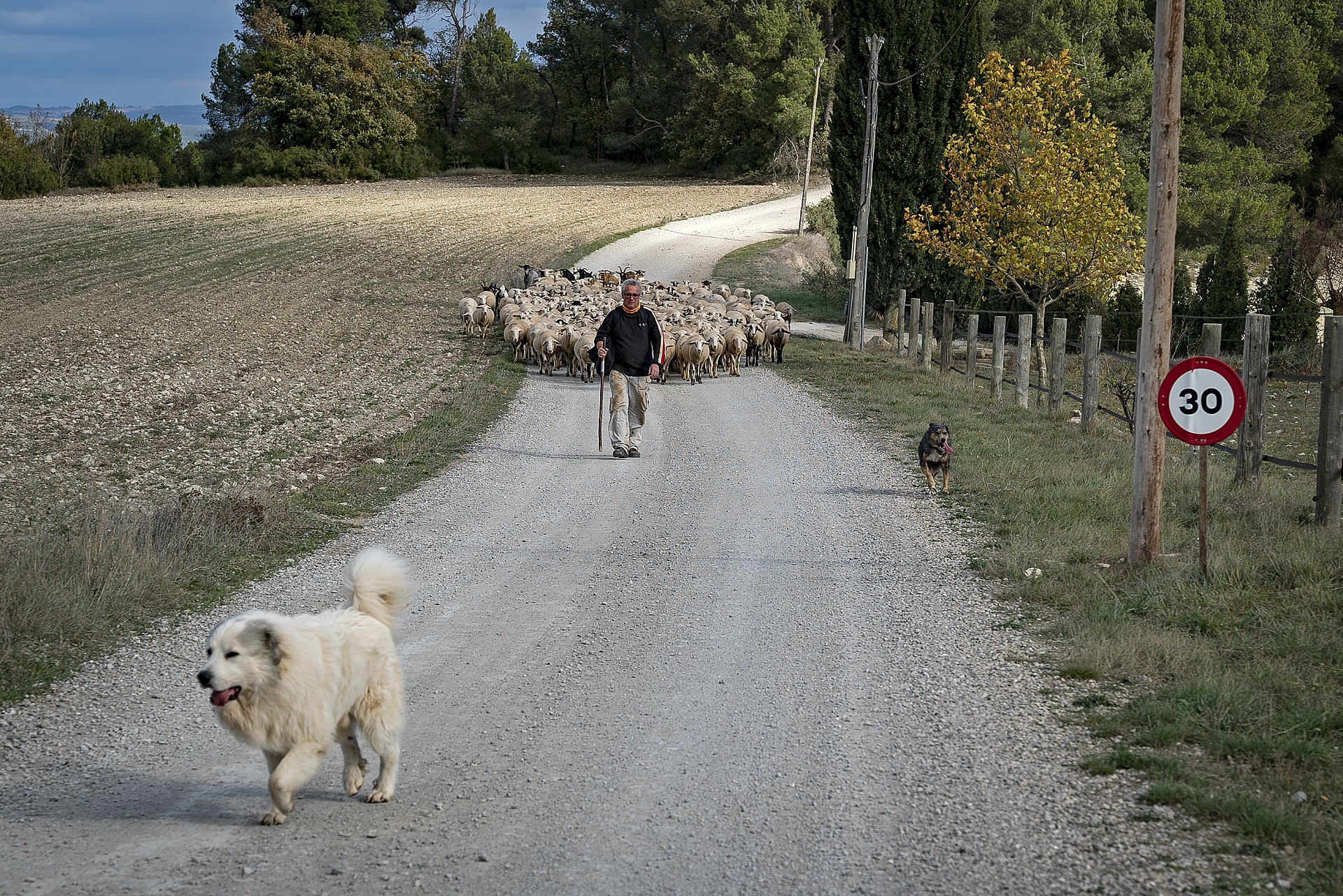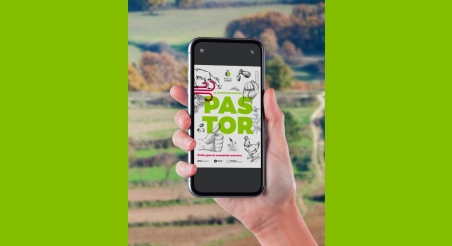With the acceleration of climate change and increasing vulnerability of forests globally, ensuring effective landscape preservation poses a significant challenge. However, the leaders of the livestock revolution in the Barcelona province are undaunted by this challenge.
In an era when discussing livestock farming can be a sensitive topic, we aim to recognize the efforts of individuals who dedicate themselves to preserving our natural heritage. Their work and the animals they care for play a crucial role in mitigating the risk of forest fires, as highlighted in the sixth BCN Smart Rural Data Bites.
Josep Maria Taixé and Gemma Clarena, livestock farmers in Argençola
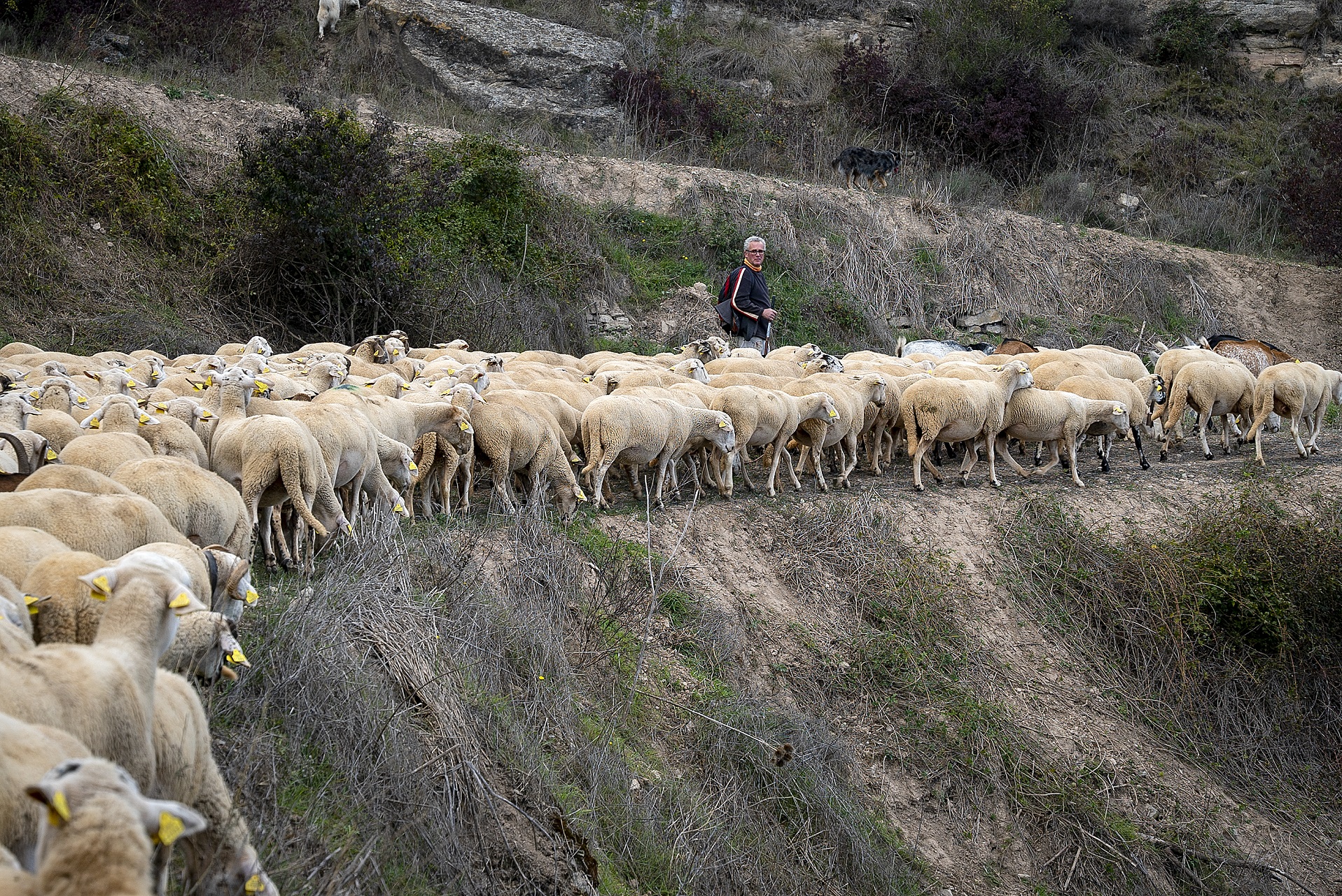
Photo: Patxi Uriz | Barcelona Provincial Council
Cal Serrats is a farm located in Argençola, led by Josep Maria Taixé and Gemma Clarena, who are fully committed to the business. They are following in the footsteps of their grandfather Pere, who purchased the first sheep in 1993. Since then, the family has been cultivating their own land and grazing their herd in the fields and woods surrounding the farmhouse.
The criteria guiding them are based on ecology, and they have been certified by the Catalan Council for Ecological Agricultural Production (CCPAE) for years. They are concerned about ensuring that their animals can grow up happily and at their own pace. To achieve this, they believe it is essential for the animals to feed in the wild.
"If you take good care of the sheep, lamb production thrives," says Gemma. She adds that the meat from Cal Serrats can be purchased from the farmhouse itself and some shops in Anoia. "We distribute locally because we are a very small company and we like to know and interact with those who enjoy our products."
Mª Àngels Altimira, livestock farmer in Sant Salvador de Guardiola
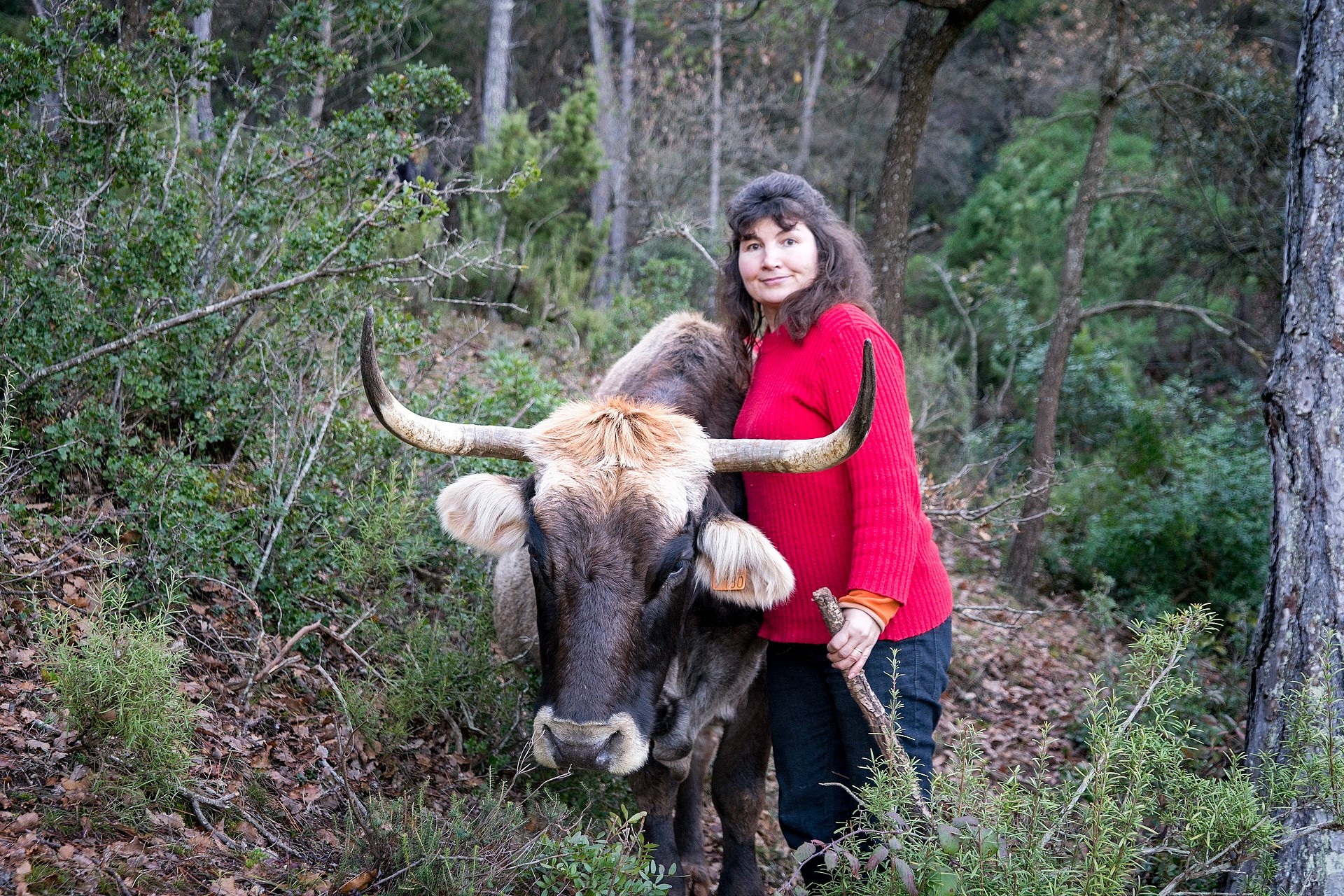
Photo: Patxi Uriz | Barcelona Provincial Council
Mª Àngels Altimira combines livestock farming with managing Mas Set-Rengs, a rural house located in the municipality of Sant Salvador de Guardiola that dates back to the 13th century. She joined it thirty years ago and has no regrets. The farm is located in the heart of the Montserrat Rural Park, between forests, meadows, cereal fields and orchards. It is an environment so rich and diverse that it begs to be seen calmly.
As an enterprising woman, she always keeps busy, but one of her favorite activities is taking the cows to graze in the forest. She enjoys seeing them eat grass freely, knowing that this good nutrition affects the quality of her animals' meat. She dedicates herself to this task with all her heart and soul, never losing her smile or the desire to keep going. In fact, she is one of the farmers who participated in the first meat-processing course at the Tall, the new shared workshop of Marganell. She knows that selling meat directly allows for more profit and is considering this option to improve the economic viability of her operation.
Francesc Molins, goat farmer in Moià
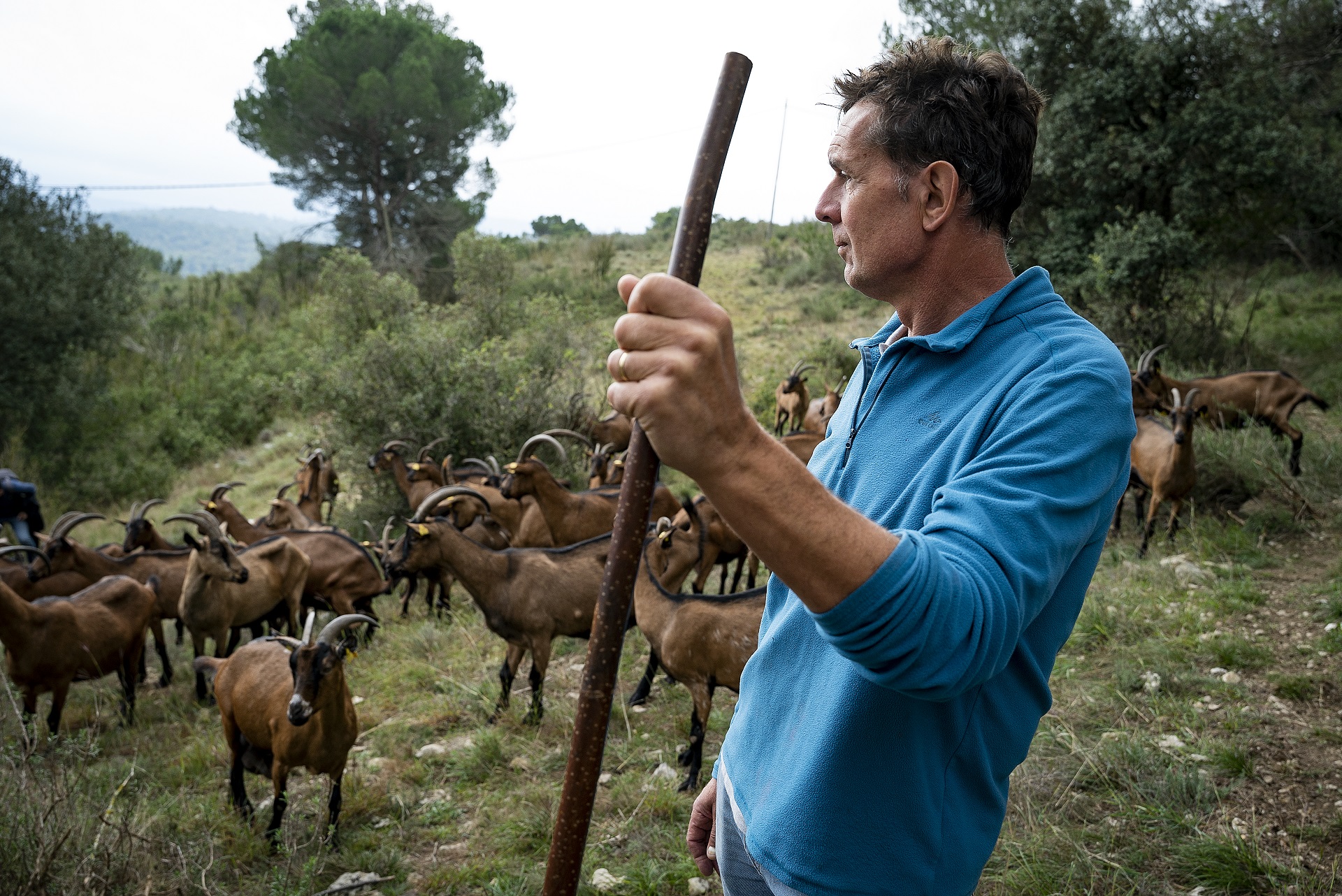
Photo: Patxi Uriz | Barcelona Provincial Council
Francesc Molins owns Alpines Les Feixes, a dairy goat farm in Moià. He not only sells meat and milk directly but also crafts artisanal cheeses.
Franc is the founding member and president of Som Pastura, an association of cattle breeders in the Moianès region. This organization has received advice as part of the European BCN Smart Rural project. He has a lot of valuable insights to share about the significance of reintroducing herds to the forest in an extensive grazing system.
— BCN Smart Rural Editorial —


